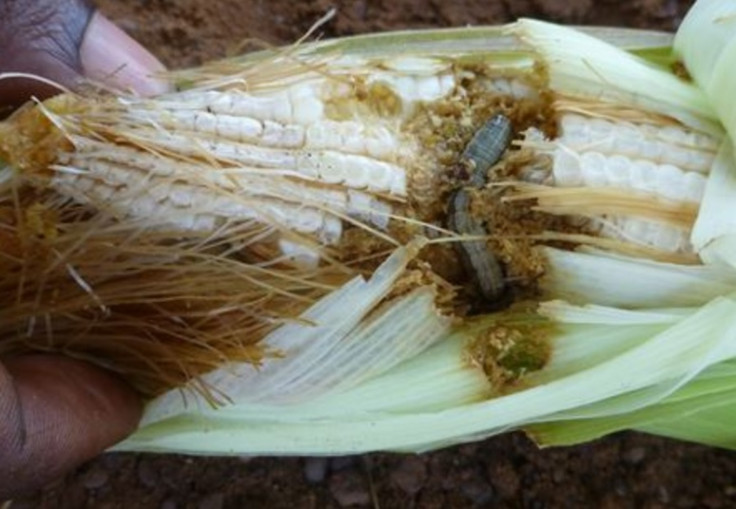Emergency armyworm talks held over invasion of crop-eating pest in Africa
UN Food and Agriculture Organisation fears for food security as species moves across African countries.

An emergency meeting is being held by the UN Food and Agriculture Organisation over the invasion of armyworms currently threatening crops in several African countries. At present, the pest has caused damage in Ghana, South Africa, Zambia, Zimbabwe, with more countries expected to be affected over the coming months.
Armyworms, native to North and South America, were first recorded as an invasive species in Africa in early 2016. They are known to devastate harvests, particularly maize and rye. The caterpillars feast on the crops – as they rampage, they consume almost all plants in their path.
The emergency meeting was attended by 13 African countries, with discussions focusing on a plan to get rid of the pests. David Phiri, the UN Food and Agriculture Organisation's coordinator for southern Africa, told AFP: "Farmers do not know really how to treat it. Nobody seems to know how it reached Africa."
Current reports indicate the armyworms will or have already reached Namibia, Malawi and Mozambique.
The species currently causing problems – fall armyworms – have developed resistance to some chemical pesticides. "You use different methods. One of them is pesticides, another is to use biological control. Another is to use natural control, like digging trenches around the farm, or using natural predators, like birds, to eat those worms," Phiri explained.

"If it is a small level of the worms, it's easy to control, using pesticides. Otherwise, it's very difficult to control it, so they will have to use different methods—including sometimes burning the crops."
Davis Marapira, deputy agriculture minister in Zimbabwe, said the government was currently helping farmers by providing chemicals and spraying equipment.
Read more:
Three African nations pushed to brink of famine by drought and catastrophic wars
Battle for water in drought-ravaged Kenya spills over into violence, with people and wildlife killed
Speaking to AP, Phiri said eradication in any of the nations affected has so far been impossible: "They have not managed to control it because it keeps evolving. But we have to find a plan for managing it."
Last week the Centre for Agriculture and Biosciences International warned that armyworms could spread even further across the globe, moving from Africa to Asia and the Mediterranean. "Urgent action will be needed to prevent devastating losses to crops and farmers' livelihoods," chief scientist Matthew Cock warned.
© Copyright IBTimes 2025. All rights reserved.






















